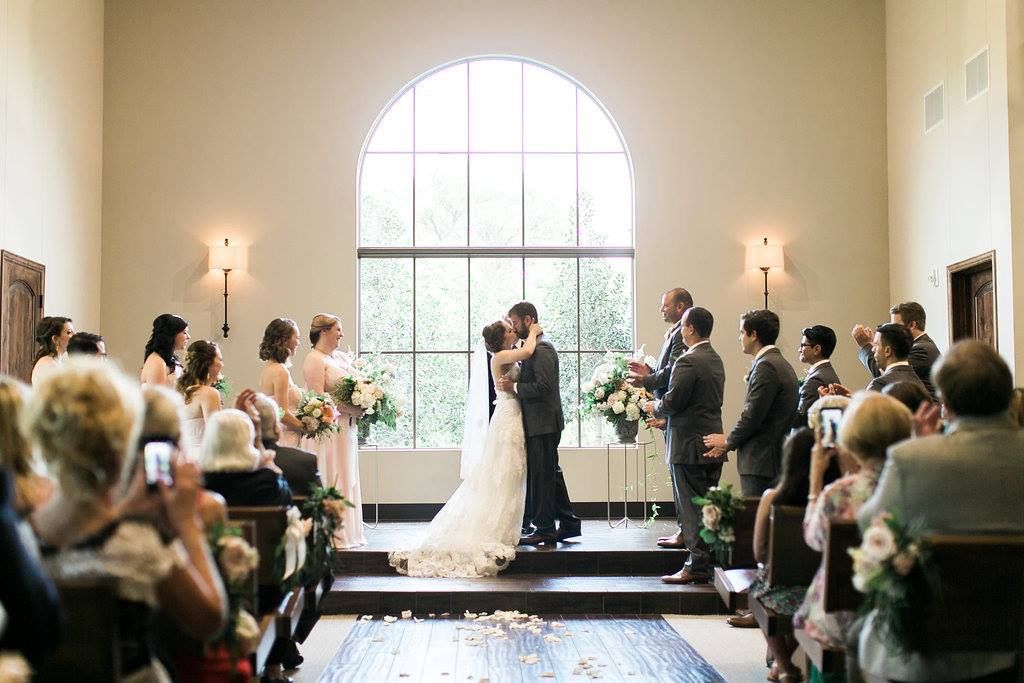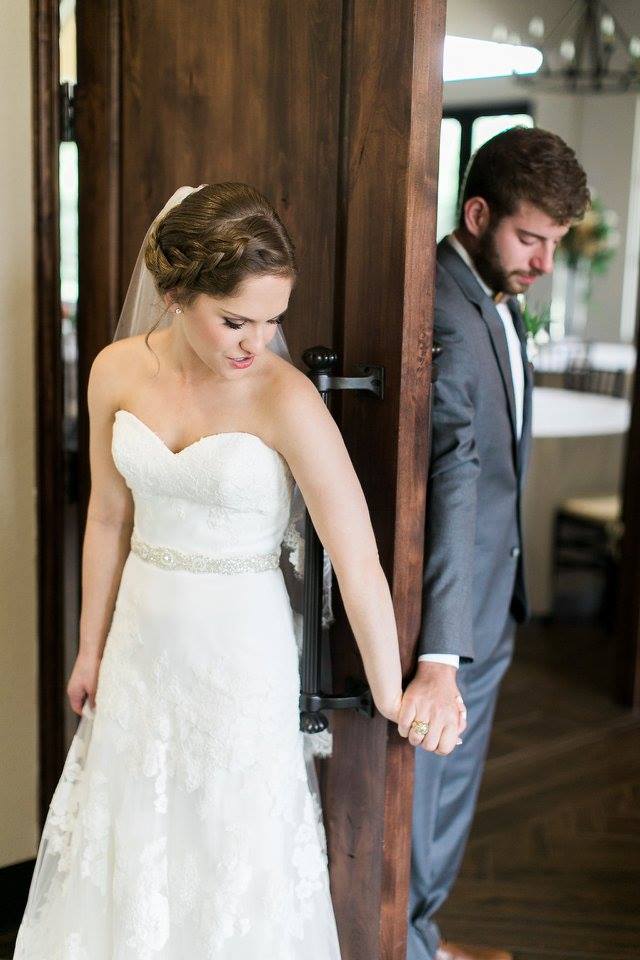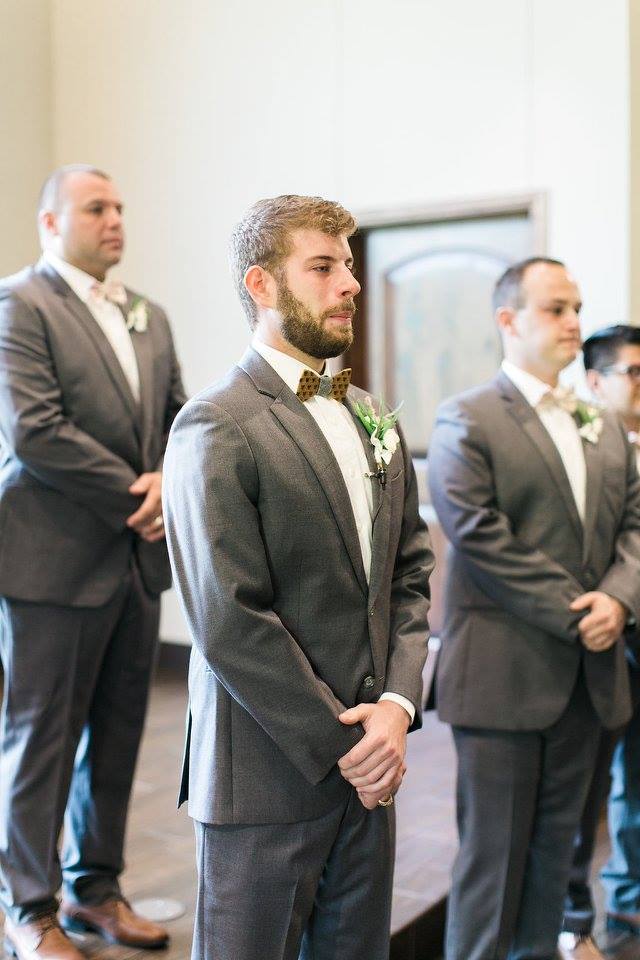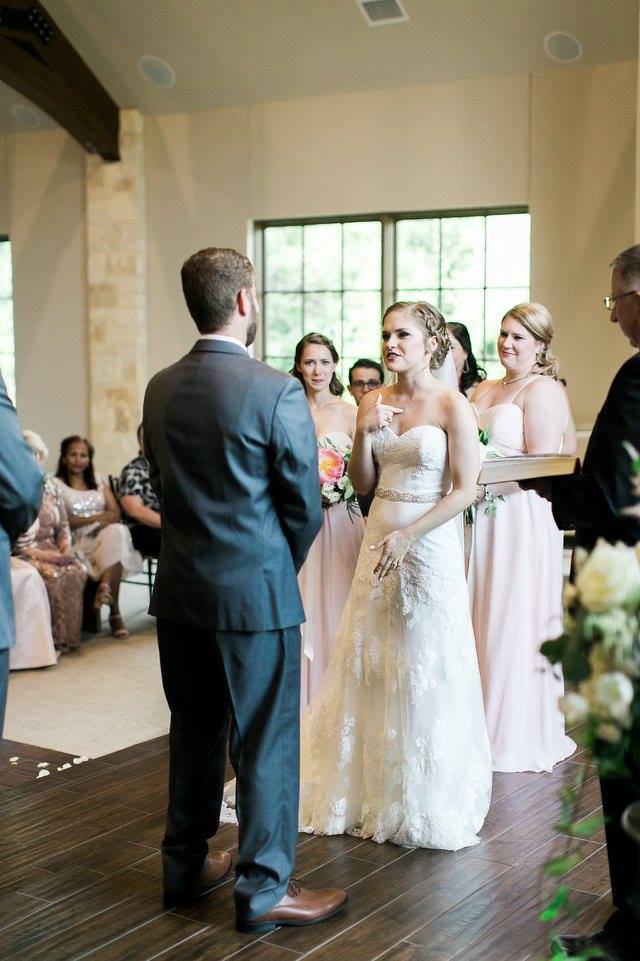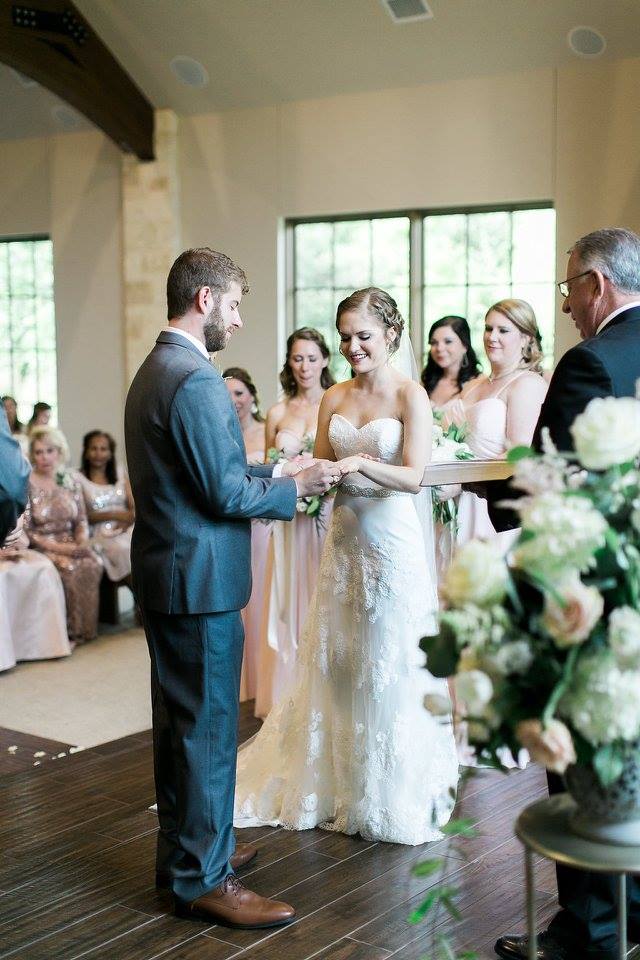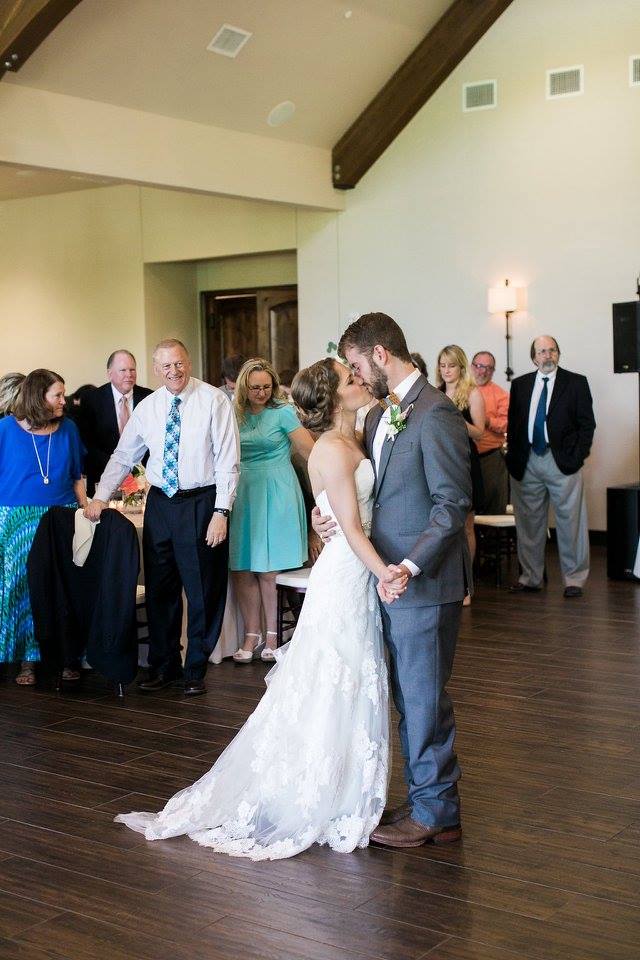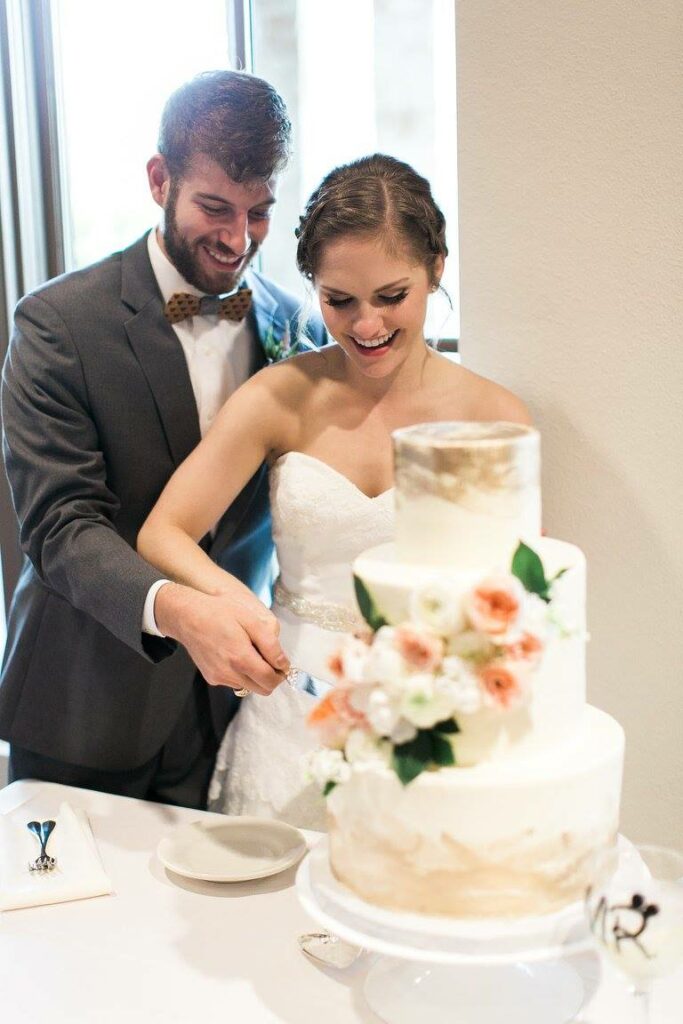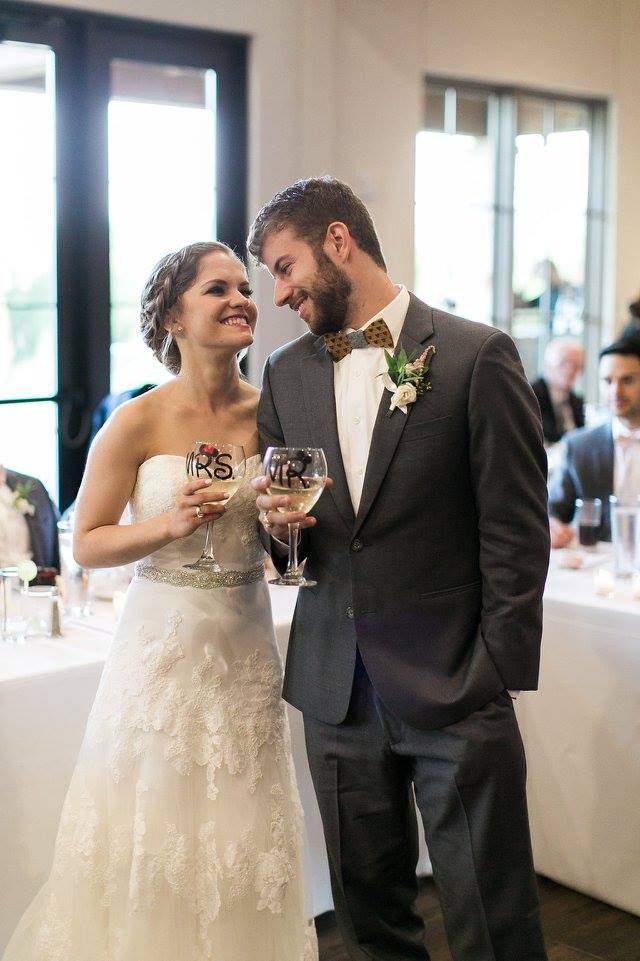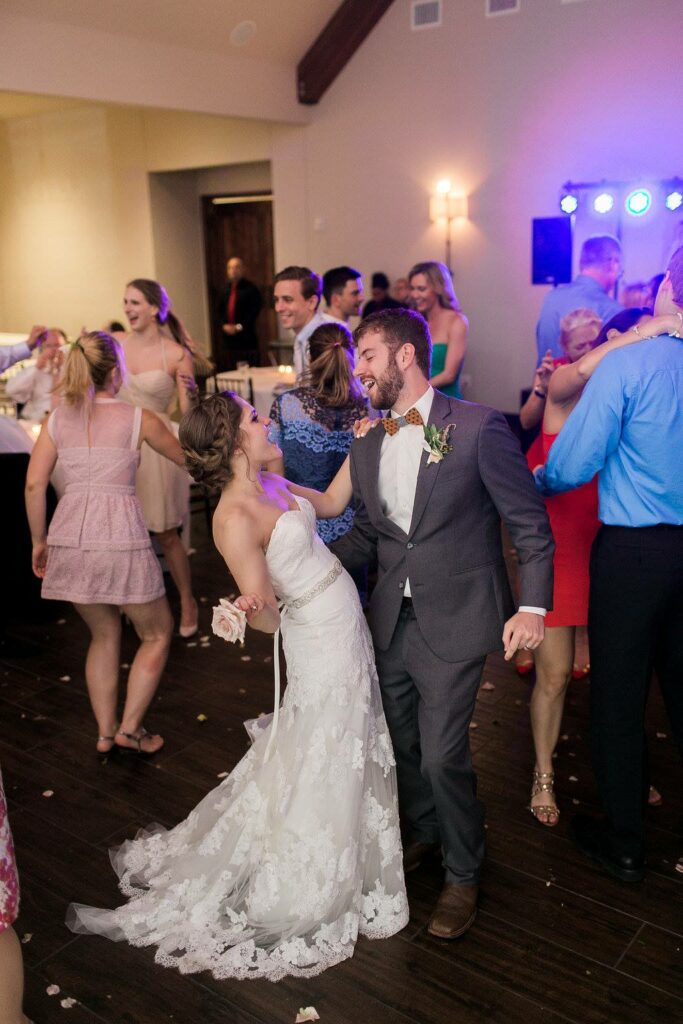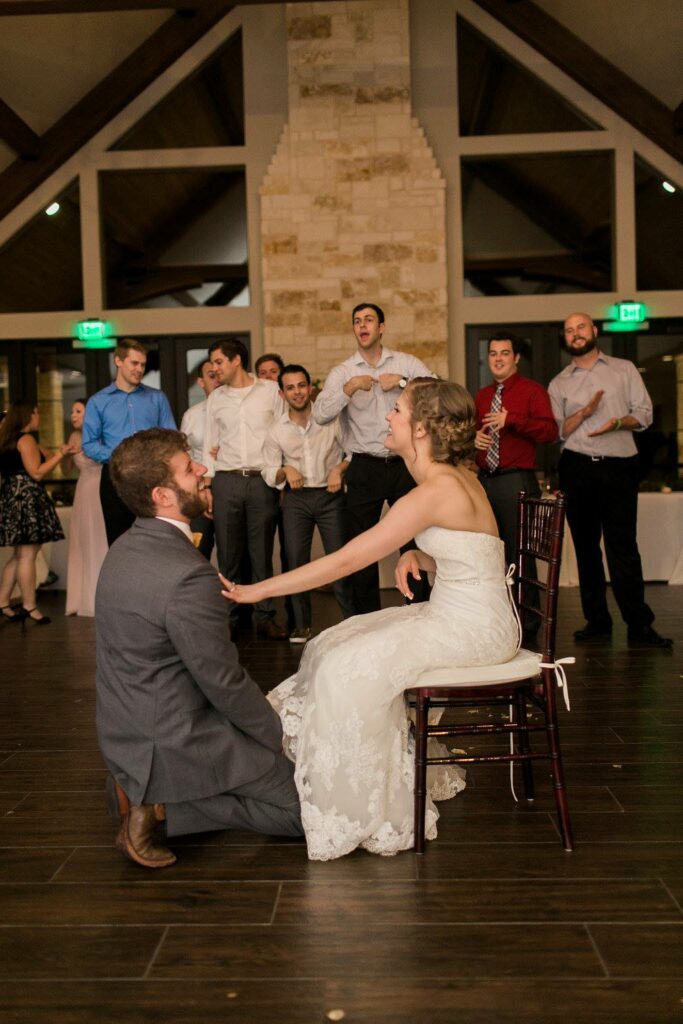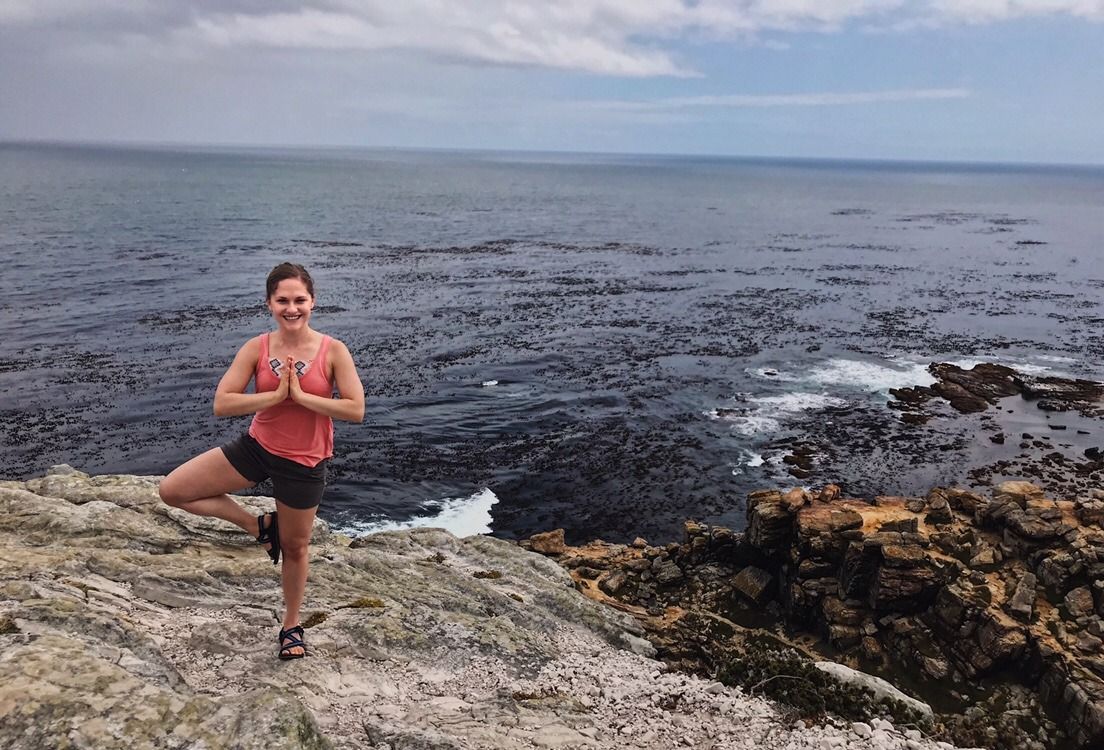2 Years of Marriage
Three months before our wedding—our world completely changed.
I still remember having to call my fiancé, Cardin, to tell him about my diagnosis. Unfortunately, he was living in Florida already, and I was still in Texas.
As I cried on the phone listening to his comforting words, I couldn’t help, but beg God not to let this change Cardin’s love for me.
I had no doubt about the quality of a man I was about to marry, but still, this wasn’t exactly what he signed up for when he asked me to be his wife.
Ironically, my diagnosis happened during the same week as our 5-year dating anniversary, which meant I was flying to Orlando to see Cardin just two days after we got the news.
I was relieved we would be reunited so soon after my doctor’s appointment, but I hadn’t told him about my fear that he would leave me yet. I prayed desperately that a weekend together would calm my worries and reassure me of Cardin’s commitment to our life together.
And what do you know—he showed up at the airport looking like this…
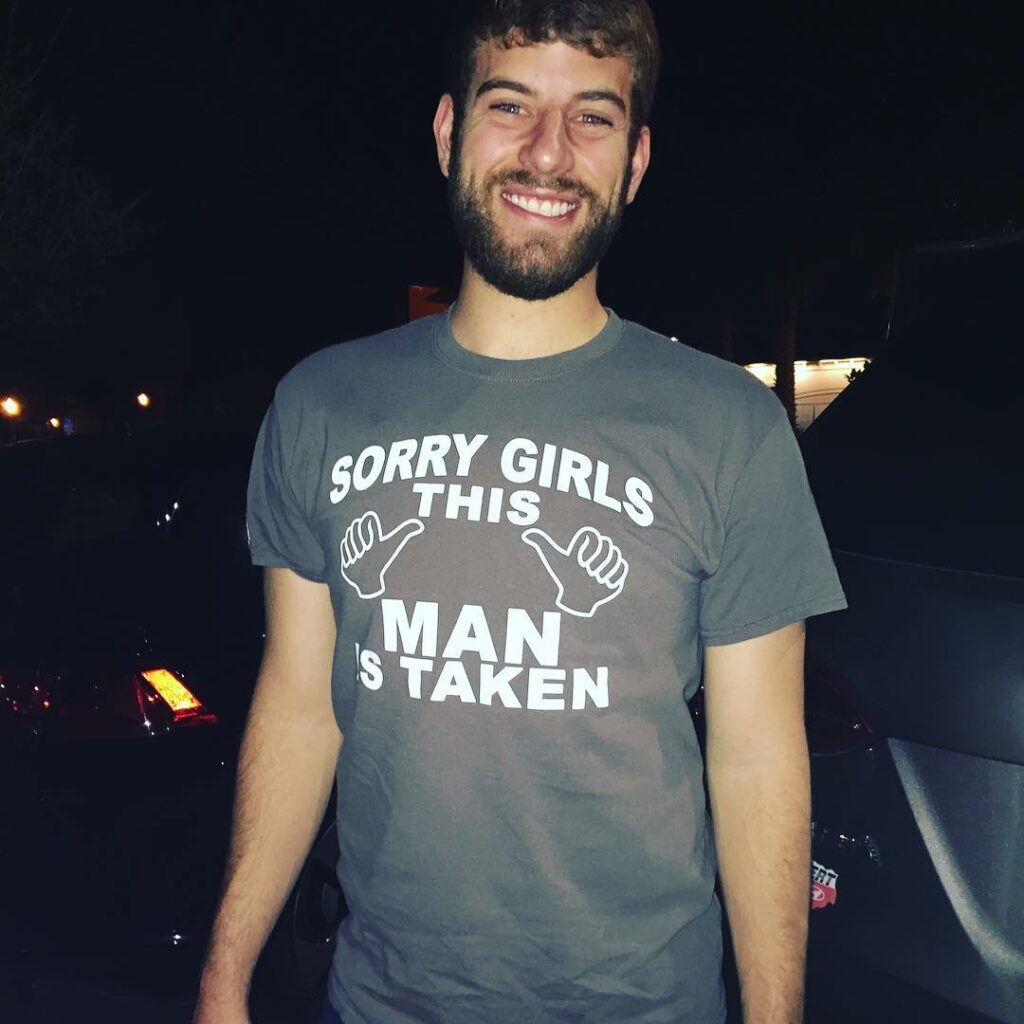
I had purchased the t-shirt in the picture above for him as a joke before he moved to Florida. Little did I know just how meaningful it would become for me!
That weekend was emotionally exhausting for both of us as we grieved the life we were supposed to have together and tried to figure out how NF2 was going to impact our future.
One of my immediate concerns was that I would lose all of my hearing before our wedding.
Since I had lost my hearing in my left ear so quickly (in a matter of minutes) and my right ear had already started to decline, my doctors weren’t sure what was going to happen.
The wife of one of my close friends from grad school happened to be a sign language interpreter and she agreed to teach us our vows in sign language.
That way, even if I wouldn’t be able to hear our vows, I could still fully experience them.
Saying our vows verbally and in sign language quickly became more than just a backup plan to us.
We decided to keep it a secret from our friends and family.
We weren’t planning on having to deal with the “in sickness and in health” part of our vows quite so soon, and as much as others didn’t want to admit it, our loved ones had some concerns about what this would mean for us too. Especially since I was moving to Orlando shortly after our wedding and would be leaving my current support system.
Our prayer was that our vows would be more than a commitment to spend the rest of our lives together. We wanted our friends and family to truly feel the unconditional love that Cardin and I share.
We wanted them to know that we’re in this together, forever. No matter what that may look like.
Fast forward two years later…
Let me start out by saying that marriage is hard. And learning to deal with a serious life-long medical condition at the same time as learning to have a healthy marriage is even harder.
I’ll admit, when I dreamt of our first year of marriage, I didn’t think it would include MRI’s, chemo infusions, and frequent hearing tests. BUT, I definitely didn’t think our second year of marriage would consist of us quitting our jobs to travel the world together!
All because I have NF2.
God can use the hardest parts of our lives and turn them into the most beautiful outcomes—the timing of my diagnosis and our wedding is a complete testimony of that happening.
As unbelievable as our first two years of marriage have been though, the reality is that some days are a challenge. We both cope with bad news very differently, and we’ve had to learn how to meet each other in our grief continually.
Adjusting to hearing loss is frustrating and has caused more than a few tense moments for us. (We’ve also learned that we should never live in a two-story house again.)
As much as I’d love to say we’ve handled this seamlessly and have treated one another with perfect patience…I can’t.
Because we certainly haven’t.
Just like any other marriage struggling to learn effective communication strategies, we’ve had to learn that on top of adjusting to my constant chorus of “what did you say”?
Dealing with NF2 also means we’re learning to have a lot more grace and forgiveness towards one another. We’re both human, and we will continue to make mistakes for the rest of our lives.
It’s not about learning to be perfect; it’s about learning to love each other in our mess.
My prayer before I was diagnosed with NF2 was that God would give us an unbreakable marriage.
Now my prayer didn’t exactly include a chronic illness and using that as a means of giving us an unbreakable marriage—but I’m so happy that God works in such mysterious ways!
During the last 9-months of traveling, we’ve pretty much been together constantly.
As risky as constant togetherness while under the stress of being in a foreign country can be, it’s taught us an incredible amount about each other.
We’re learning subtle things about one another’s patterns and habits that we would never have noticed otherwise. We’re learning to adapt to stressful situations together. And we’re learning to rely on each other and appreciate one another’s strengths more than ever before.
Starting our marriage so soon after my diagnosis was a challenge and felt completely unfair, but now…I can’t help, but be grateful for such seemingly awful timing.
Cardin has always been and will always be my favorite person. He’s my best friend, my encourager and my constant entertainment. He loves me in ways I could never have dreamed of, and he is beyond any husband I thought I deserved.
God provided me with the perfect partner.
And I’m happy to say that doing our vows in sign language was just a glimpse of the amount of love we have for each other and the love that God has for us.
In honor of our two year anniversary, I’m sharing our wedding video below, so you can relive our big day and see our special vows! And of course I couldn’t resist sharing a few pictures!
[embedyt] https://www.youtube.com/watch?v=rpE8sHUXQz8[/embedyt]
Images by Charla Storey.
If you want updates about our travels, subscribe to my blog to receive posts directly to your email. And if you want to keep up with us daily while we travel, follow me on Instagram at beingpositioned or Facebook @beingpositioned!
